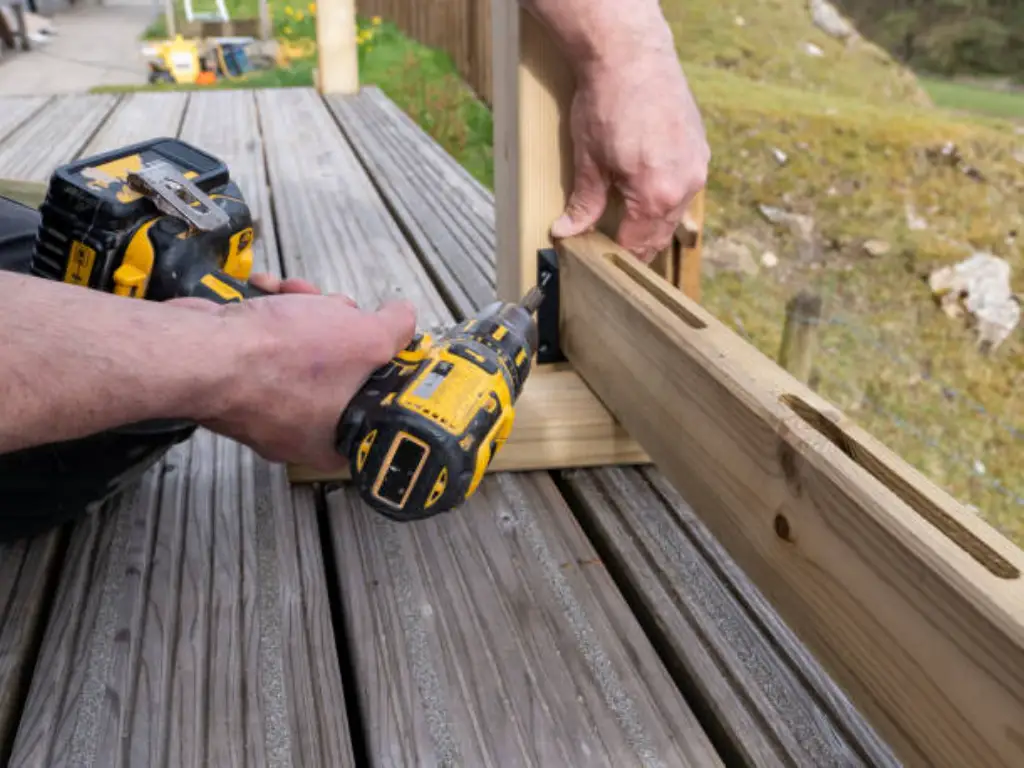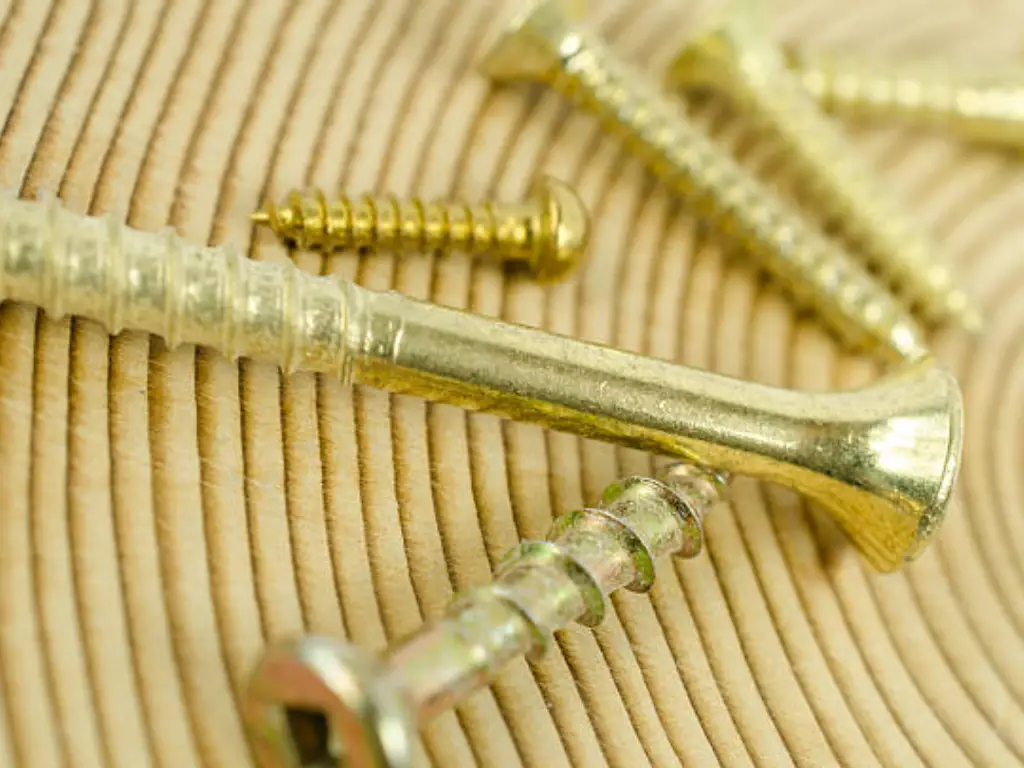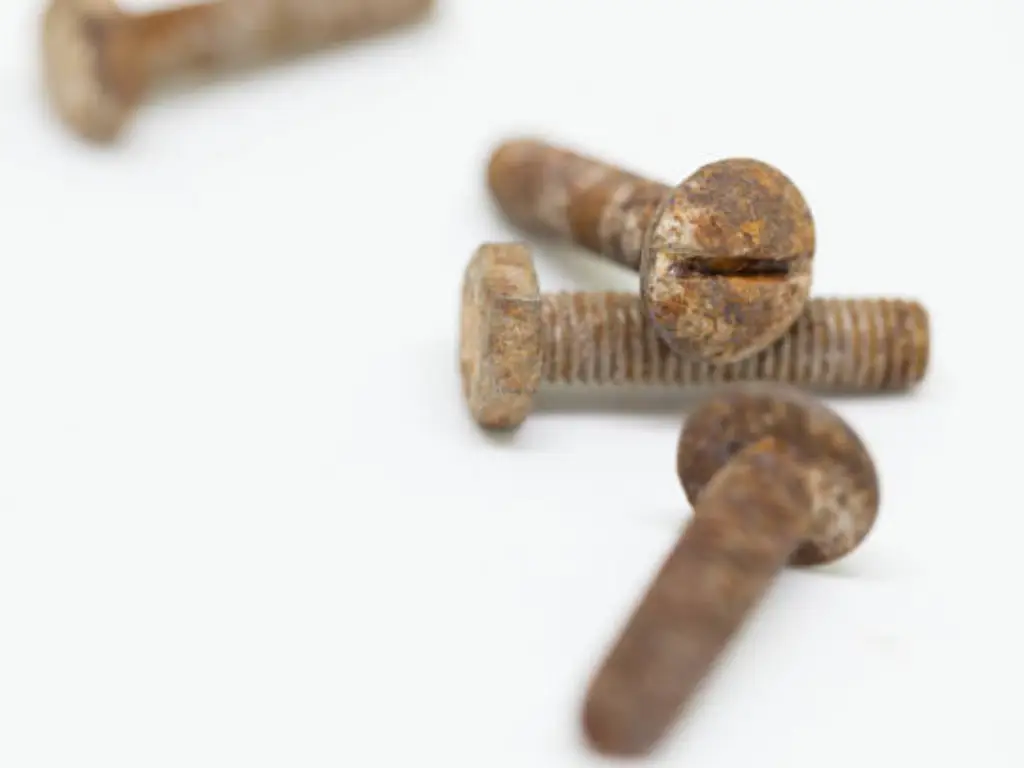When you’re planning an outdoor project, the success of it largely hinges on the small details—yes, I’m talking about screws. It’s a battle royale between deck screws vs wood screws, and knowing which contender to bet on can make or break your project. Don’t worry, though; I’ve got the inside scoop that’ll guide you through this nail-biter. Alright, let’s drill into it.
What are Deck Screws?
Deck screws, the unsung heroes of outdoor builds, are specifically designed for, well, decking. But it’s not just decks waving the flag for these little fasteners; they’re also the go-to for a variety of outdoor structures. What makes them stand out? For starters, they’re usually made from stainless steel or are coated to offer the highest level of corrosion resistance. With features like a larger surface area and aggressive points, they’re crafted to withstand very harsh weather conditions, ensuring your outdoor projects stay snug and secure for a long time.

Deck screws are more than just a fastener; they’re peace of mind. Their unique design, with deeper threads and a coated surface, helps prevent the wood from splitting while offering a secure join. Whether it’s the standard carpentry or more demanding woodworking projects, choosing the best deck screws could mean the difference between a job well done and a do-over.
What are Wood Screws?
Ah, wood screws, the classic fastener with a flair for the traditional. These versatile little guys are the bread and butter of indoor and lighter-duty outdoor projects. Wood screws come in various shapes and sizes, tailored for different projects and materials. They’re generally made from steel, but you’ll find them in brass, bronze, and even copper, each material bringing its own strengths to the table.

Wood screws are like the Swiss army knife in your toolkit; there for you when you need to join pieces of wood without fanfare. Their sharp tip and threads designed to grip the wood fiber offer a strong join, but without the bells and whistles of weather resistance. This is why, for projects that don’t face the wrath of the elements, the regular wood screw shines, providing a dependable hold without the need for extra features.
Deck Screws vs Wood Screws: Essential Differences
| Comparison Dimension | Deck Screws | Wood Screws |
| Material | Stainless steel or coated for durability | Steel, brass, bronze, copper |
| Corrosion Resistance | High, suitable for harsh outdoor settings | Lower, may need treatment for outdoor |
| Head Shape | Wider for larger surface area | Countersunk for flush finish |
| Drive Types | Varied, often with more torque | Varied, may strip more easily |
| Shank and Threading | Partially threaded for tight joining | Fully threaded for wood joining |
| Shear Strength | Higher, for heavy-duty use | Lower, suitable for lighter projects |
| Cost | Generally higher due to special features | Lower, simpler design |
Material
When it comes to deck screws vs wood screws, the first thing to note is the material. Deck screws often boast stainless steel or are otherwise coated to fend off corrosion. This gives them a leg up in outdoors settings where they face rain, sunshine, and everything in between.
Standard wood screws, on the other hand, favor a variety of metals, including the sturdy standard steel or even aesthetically pleasing brass. While these materials are great for indoor or less harsh outdoor conditions, they might not hold up as well against Mother Nature’s mood swings without the protective coating similar to decking screws.
Corrosion Resistance
In the world of deck screws vs wood screws, corrosion resistance is a heavyweight category. Deck screws take the cake here with their coating or stainless steel composition, specifically engineered to resist rust and corrosion. This makes them the perfect candidate for those projects that will battle the elements year after year.

Wood screws, while tough in their own right, might not be as equipped for the fight against corrosion, especially in very harsh weather conditions. They can still be used in outdoor projects but may require additional treatment or more regular maintenance to keep rust at bay.
Head Shape
The contour of the screw head plays a pivotal role in the deck screws vs wood screws showdown. Deck screws often come with a wide head that creates a larger surface area, allowing for a stronger join on the top of the wood or composite materials. This design feature helps ensure that decking materials stay flat and firm.
Wood screws typically sport a countersunk head, perfect for allowing the top of the screw to sit flush with or slightly below the surface of the wood. This makes for a very clean and aesthetic finish, ideal for woodworking projects where appearance is key.
Drive Types
Dive into the drive types, and you’ll find that both deck and wood screws offer a variety of options, from Philips to Torx to square. However, deck screws often feature drive types that provide more torque and reduce the risk of stripping, making them easier to work with during those large-scale outdoor use.
Wood screws also offer a range of drive types but might not always prioritize the no-strip feature. This isn’t usually a deal-breaker for smaller projects or in situations where screws are not being driven by power tools.
Shank and Threading
Shank and threading configurations mark a significant difference between deck screws and wooden screws. Deck screws typically have a partially threaded shank to draw the decking board and the substructure together, creating a secure join without bulging the top frame. Their aggressive threading helps them grip into the decking and joists securely.

Wood screws, conversely, might exhibit a fully threaded shank which is ideal for tightly pulling two pieces of wood together. The design of their threading, while effective for creating a strong join, isn’t specifically tailored for the thickness of decking materials or the need to combat the outdoor elements.
Shear Strength
Shear strength is a critical factor, especially in outdoor builds where the structure will face a barrage of challenges from weather and use. Deck screws are made to handle the shear force, being able to support the weight and movement that comes with decks and other heavy-duty outdoor constructions.
Wood screws, while durable in their domain, might not always stand up to the same level of shear stress as deck screws, especially in applications where the forces exerted are beyond what standard wood joins encounter.
Cost Considerations
Tackling the issue of cost, deck screws generally command a higher price, attributed to their specialized design and materials suited for longevity under duress. It’s an investment in durability and peace of mind for your outdoor projects.
Wood screws, being the more traditional option, usually come in at a lower price point. They’re perfect for projects on a budget where the conditions don’t demand the fortitude of deck screws.
Why Deck Screws are the Go-To for Outdoor Builds?
Let’s cut to the chase: when you’re in the throes of planning that dream deck or any structure that braves the outside world, you want peace of mind. Enter deck screws, your trusty ally against the forces of nature. These screws are not just another fastener; they’re your guarantee that whatever you build outdoors is built to last. With their stainless steel composition and special coatings, they say “bring it on” to rust and corrosion, ensuring your project stays standing through seasons of rain, snow, and sunshine.
But it’s not just about battling the elements; it’s about keeping your outdoor haven looking top-notch. Deck screws, with their larger surface area and snug fit, keep boards flat and secure, minimizing warping and popping. And let’s not forget the aesthetic appeal—those flush finishes mean no unsightly bumps or lumps on your deck surface. So, when you’re weighing deck screws vs wood screws for your next outdoor project, remember: choosing the right screw isn’t just a matter of fastening pieces of wood together; it’s about investing in the longevity and beauty of your outdoor spaces.
How the Tip Design Influences Screw Selection
At first glance, the tip of a screw might not seem like a big deal. But, oh, how it influences the fate of your outdoor build! The sharp tip and aggressive point of deck screws are like the secret sauce for easy starting and fast penetration into both soft and hardwoods. No pre-drilling required here, which is a serious time-saver during those expansive decking projects. This design minimizes the risk of splitting wood, preserving the integrity and aesthetics of your materials.
On the flip side, wood screws, with their sharp tip, are all about precision. They’re designed to grip into the wood fiber, ensuring a secure join every time. While they might require a bit of pre-drilling, especially in harder materials, it’s a small step for a big leap in craftsmanship quality. In the context of deck screws vs wood screws, the tip design isn’t just a tip; it’s a pivotal point that defines the efficiency, appearance, and structural integrity of your build.
Specific Uses for Deck Screws and Wood Screws in Outdoor Builds
When planning your outdoor palace, the devil’s in the details—or more specifically, in choosing the right screws for the job. Deck screws are your knights in shining armor for decking, fencing, and other structures that face the great outdoors. Their design to combat rust and corrosion, coupled with their strength, makes them ideal for securing decking boards to frames or attaching pieces of composite materials.

Wood screws, while they may take a back seat in ultra-durable requirements, shine bright in scenarios where appearance is key. Think pergolas, trellises, and other garden accents where the detail of the joinery can be admired up close. Their ability to sit flush with the material makes for a tidy finish, enhancing the natural beauty of your woodwork.
In a nutshell, when you’re hammering out the details of your outdoor project, matching the task to the type of screw—deck screws for the heavy-duty, weather-resisting jobs, and wood screws for the more decorative touches—can make all the difference in the outcome.
Conclusion
Navigating the selection between deck screws vs wood screws might seem like wading through a hardware jungle, but it’s all about matching the right tool to the right task. Remember, deck screws are your go-to for outdoor builds where durability, weather resistance, and structural integrity are paramount. They’re the best deck screws for a reason—they offer a stronger join, better withstand harsh weather conditions, and promise a lasting beauty for your outdoor projects.
Wood screws, with their different projects and material compatibility, remain essential for indoor projects or outdoor builds less exposed to the elements. Their finesse and finish are unmatched for detailed woodworking tasks.
Whether your next adventure is building a deck that defies the elements or crafting a garden gazebo that’s a feast for the eyes, choosing the correct fastener—be it deck screws or wood screws—is a step towards turning your outdoor dreams into durable, beautiful realities. Remember, in the epic saga of deck screws vs wood screws, the real winner is the one that best suits your project’s needs.
So, grab your tools, select your screws wisely, and let’s build something breathtaking—right after we check the weather forecast, of course.






